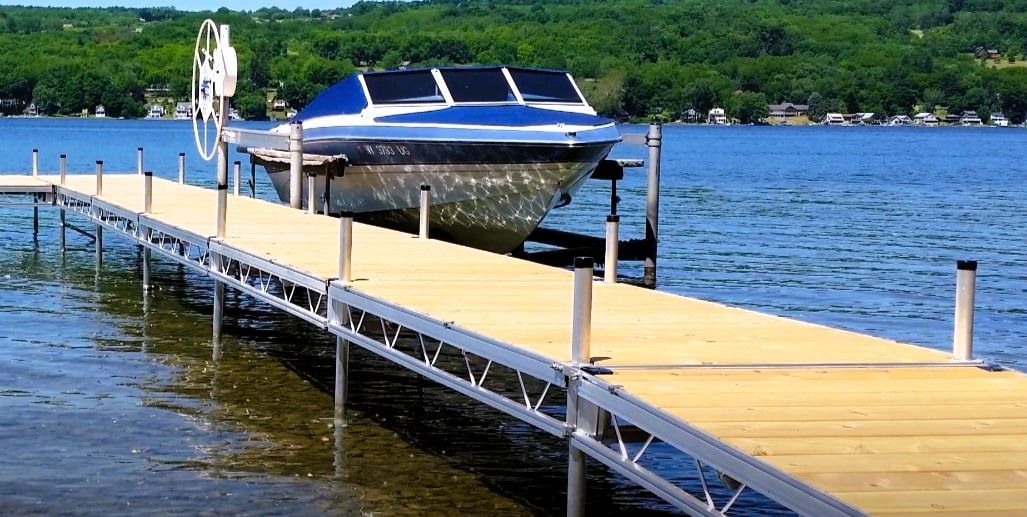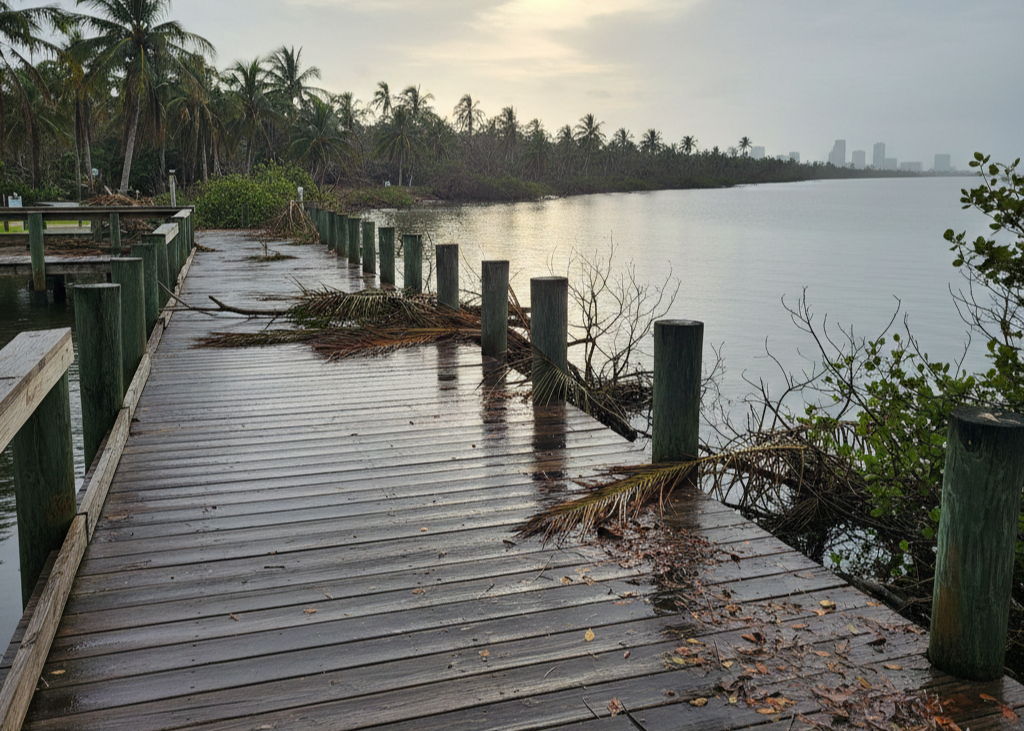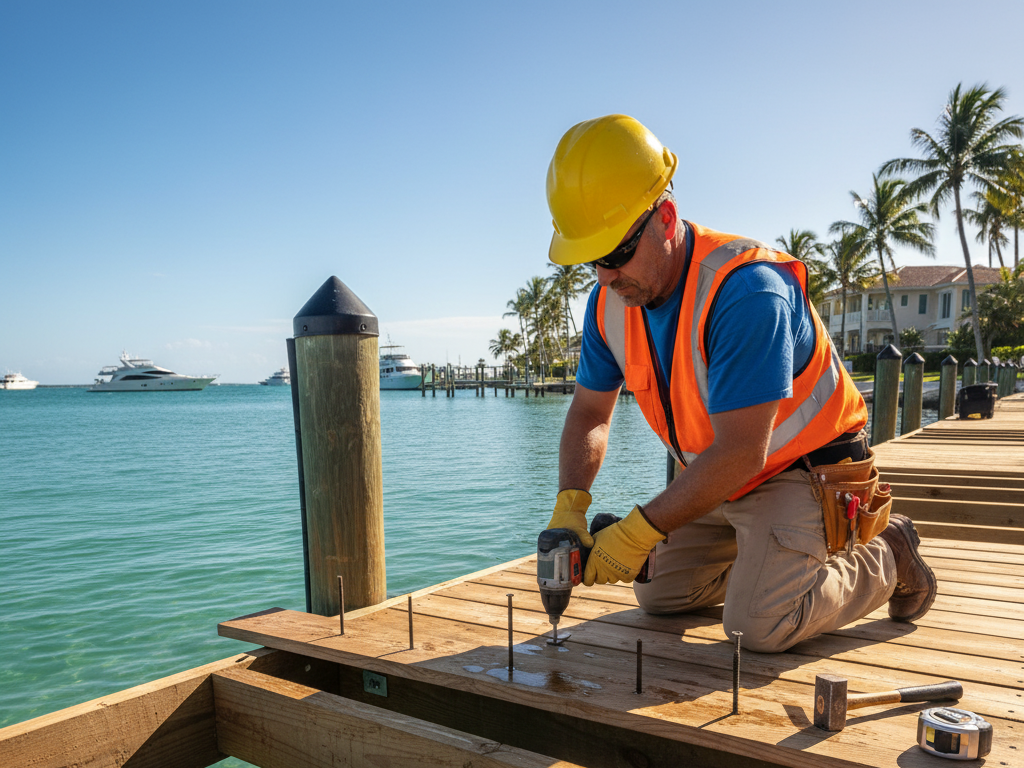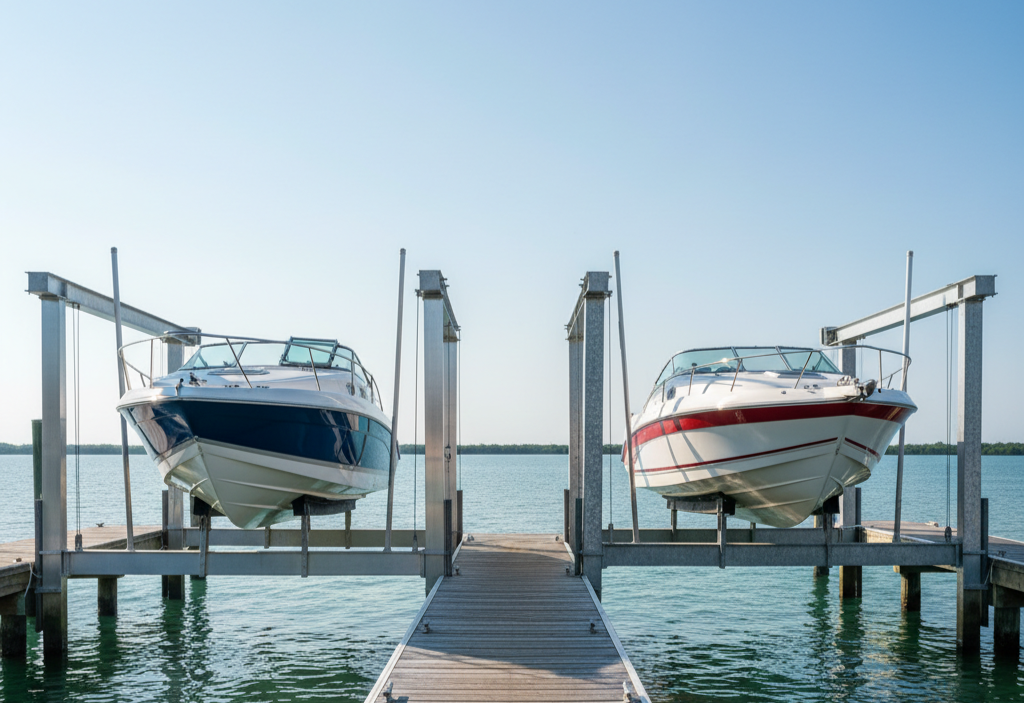Choosing the Best Decking for Your Boat Dock
What is the best decking material for your dock?

You're embarking on an exciting project to add a boat dock to your waterfront property, a wonderful way to enhance your access to boating, swimming, and fishing in your favorite lake or river. This new decking will serve not only as a practical entry point but also as a peaceful retreat to unwind, connect with nature, or reflect on what inspires you. Installing this decking will not only add immediate value to your home but also enhance its functionality. So, what decking material should you choose for optimal safety and long-lasting durability? Let's explore a few popular options.
Composite Decking
Is your property home to a boat dock? Consider the use of composite decking. This is a fantastic substitute for wood: it's ridiculously strong and very low-maintenance, too. The material is fabricated from a mixture of wood fibers and plastic, making it extremely resistant to rot and insects. It's also currently made in a variety of colors and wood grain textures, ensuring that you will be able to find one to match your property.
Pros:
- Durable and long-lasting
- Eco-friendly options are available
- You can choose from many different colors and textures
Cons:
- It's pretty heavy, which can make installation a bit tricky
- Not the best choice for floating docks
- It can get really hot when the sun's out
You can also find capped composite decking, which has a printed/coated top for added durability, or non-capped, which is less expensive but requires more maintenance. Overall, composite decking is a good choice for keeping your dock beautiful.
Plastics and Vinyl
What about plastic decking—vinyl especially—which people are doing for boat docks and all kinds of stuff when they want to go very affordable and low-maintenance? Vinyl is polyvinyl chloride (PVC). Vinyl looks good, is super low-maintenance, and is pretty inexpensive. You can get vinyl in all kinds of colors and fashions, and even using what they call wood grain technology, you can get vinyl now that looks like wood.
Pros:
- Budget-friendly upfront
- Lots of colors to choose from
- Often made from recycled materials, so it's a greener choice
- Super easy to clean—just soap and water do the trick!
Cons:
- It can get brittle in cold weather, which might lead to cracks
- The wood-look options sometimes come off as cheap
- It heats up in the sun so that it can be uncomfortable on hot days
- Colors might fade a bit over time with sun exposure
So, if you're considering decking options, vinyl is definitely worth a look!
Treated Wood
Treated wood is super popular with homeowners! It's wood that has been specially treated to make it resistant to moisture and insects so that it won't rot or be a target for insects. It's affordable and maintains the classic look of wood.
Pros:
- Affordable and easy to find
- Maintains the natural wood vibe
- More durable than untreated wood
Cons:
- If you pay attention to maintenance, it can be resistant to damage from moisture.
- Needs some regular care, like sealing and repainting
- The chemicals used in treatment might be harmful to aquatic life
- Can splinter over time, which can be a safety concern
There's a reason we treat wood—it is worth it! But for it to stay in top shape, you should consider and care for your treated wood occasionally.
Aluminum Decking
Aluminum decking is the residents' number one choice for a good reason. It's super lightweight and impeccably stiff, and you won't have to put in much effort for maintenance. The catch is that it comes at a higher cost than the other options, which makes it better suited for commercial piers or high-traffic areas.
Pros:
- Built to last, it won't rust or rot
- Lightweight, making installation a breeze
- Very low upkeep is required
Cons:
- It's the most expensive option out there
- It's hotter than hell underneath the sun; there might be a whelm or two for poor bare feet.
- Dents and scratches can happen, so be careful!
The bottom line is that if you're willing to invest in aluminum decking and accept that it's not the cheapest or coolest option when temperatures soar, then you're looking at a laughably low-maintenance, safe bet for as long as you want to own a house.
Wood-Polymer Composite
Wood-polymer composite, or modified wood, is a material blended from wood fibers and recycled plastic, making it an easy-care, eco-friendly choice.
Pros:
- Lower maintenance than regular wood
- No worries about stains, cracks, or splinters
- Stands up well against decay and pests
- Looks even better as it ages
Cons:
- If not installed right, it might sag
- Poorly made options can look a bit fake
- Some versions can be slippery, so watch your step!
Overall, wood-polymer composite is a much better option for those who are looking for a durable outdoor material that also looks great!
Selecting the Ideal Decking Material for Your Boat Dock
Choosing decking material for your boat dock can feel overwhelming, but it doesn't have to be. Start by considering your dock's location, your budget, and the desired look. Aluminum is ideal if you want a maintenance-free and durable option. For eco-friendly and low-maintenance, go for wood-polymer composite. If you need budget-friendly, treated wood is a good choice, but be prepared for maintenance.
Whichever option you select, ensure it's waterproof—water can be ruthless. Do your research on all options before making a purchase.
If you still need to figure out the best decking material for your dock, feel free to reach out to a professional! Tampa Dock Builder is here to help you choose the right materials. We offer affordable, eco-friendly decking options that fit your budget. For the best decking material for your boat dock and advice in Tampa Bay,
contact Tampa Dock Builder anytime; we're always available to assist you.


